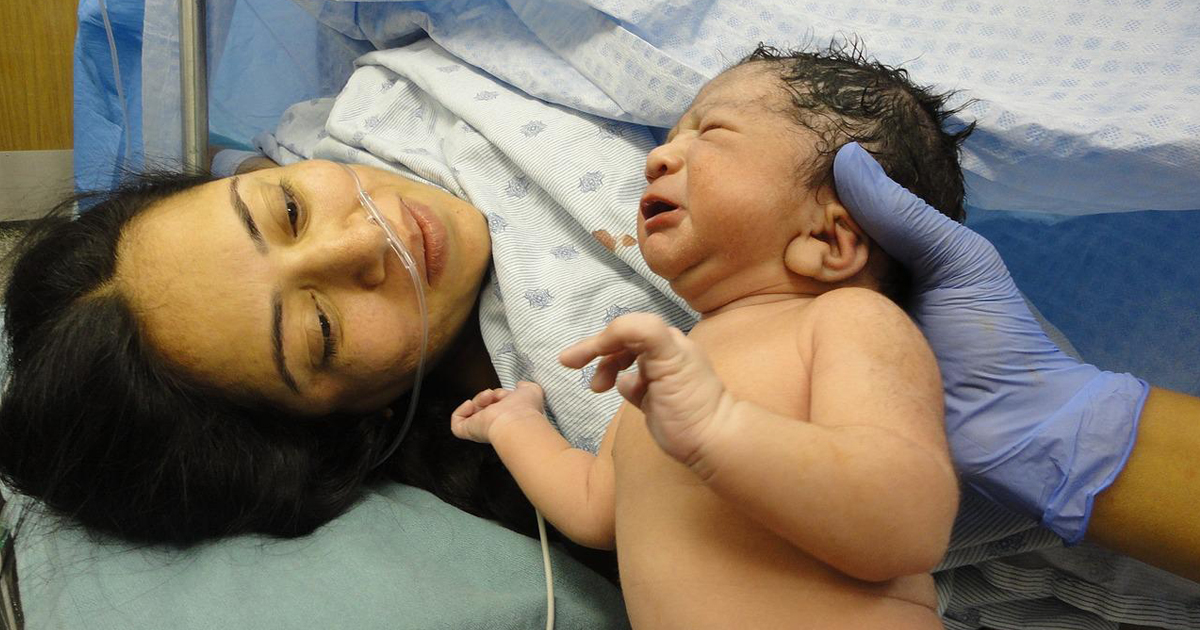After you have a baby, your body goes through many changes. The postpartum period is when your body starts to heal and recover from childbirth. This period usually lasts 6 to 8 weeks. During this time, you may have some bleeding and discharge, soreness, and fatigue. You may also have mood swings, anxiety, and trouble sleeping. It is important to take care of yourself during this time by eating well, resting when you can, and getting support from family and friends.
You change as a person after giving birth. Your priorities transform, and you notice behavioral changes as well. You start thinking less and less for yourself and more and more for your new baby.
Here are the top ten things women say after birth-
Is My Baby Okay?
When you wake up after your delivery, the first thought that comes to your mind is- is my baby okay? Now, this is normal, and you should not let anyone tell you otherwise. Even after a harrowing delivery experience, mothers usually want to know if their newborn is doing fine, and this is when you know that your baby has a special place in your life, which no one else would be able to take up.
Thank Goodness, it is over!
As a woman who just gave birth, one of the first thoughts that would strike you is that of relief. You would most likely thank your stars that the entire process is now over, and you won’t be asked to push anymore. This is completely fine because delivering a baby is a taxing process. Once you have gone through the entire process, you cannot but be relieved that it is over. And, now you are looking forward to starting a new chapter of your life with your newborn.
When Can I Eat?
After such an exhausting experience, it is normal for you to feel famished. But don’t worry, your doctor will tell you when and what you can eat. The dietitian will also give a postpartum diet, which you will need to follow for your and your baby’s well-being.
OMG,why do you keep jamming your fist into my stomach?
Minutes after your baby is born, and when you finally think that the worst is behind you, the nurse will come and start massaging the fundus of your stomach. At this very moment, you might want to grab her wrist and ask her to stop, but well you know she is not doing it because she is a sadist, but she is doing it to prevent you from getting a hemorrhage. Sometimes the uterus does not contract properly after delivery, and the nurse is massaging it to help it contract. Else you might lose a lot of blood.
These After-Birth Plans Are No Joke
Here’s the thing. A lot happens in the first 24-72 hours of giving birth, and while you think the hard part is done, it’s just the beginning. In the same way, a birth plan can help you feel confident going into labor, having a postpartum plan can give you a sense of control afterward. Knowing what to expect (and what to do if things don’t go according to plan) can help you feel more prepared for this next phase of parenting.
When Can I Start Breastfeeding?
If you’ve never breastfed before, the first week with your baby can be both exciting and daunting. There are a few things you can do to make sure that everything goes smoothly. First, make sure that you have all the supplies you need. You’ll need a comfortable place to sit or recline, a pillow for support, and some water to drink. Second, get familiar with the breastfeeding process. Read up on how to position your baby and how to latch them onto your breast correctly. Third, be patient! It can take a little bit of time for both you and your baby to get used to breastfeeding. If you’re having trouble, don’t hesitate to ask for help from a lactation consultant or your healthcare provider.
How Much Does The Baby Weigh?
You would also want to know how much your baby weighs. The birth of a child is a momentous occasion. According to the World Health Organization (WHO), the average birth weight of a full-term male baby is 7 pounds (lb) 6 ounces (oz), or 3.3 kilograms (kg). The average birth weight of a full-term female is 7 lb 2 oz. These averages can help parents have realistic expectations for their newborn’s size and weight.
Can I Get An Ice Pack?
Ice pack can be really helpful to soothe your post-delivery vag1nal pain. For the first 24 hours, keep applying ice packs to the perineal area for 10-20 minutes continuously. After 10-20 minutes, remove the ice pack. Repeat after an hour or as needed.
When Will I Be Able To Feel My Legs Again?
If you were put on anesthesia during childbirth, you will likely experience numbness in your lower body and legs afterward. Your doctor and nurse will monitor you as the anesthesia wears off and help you begin to move around. In most cases, the numbness goes away within a few hours. However, if you experience prolonged numbness or pain, you should contact your doctor.
When Can I Take A Shower?
After you’ve given birth, you may be tempted to jump in the shower and scrub yourself clean. However, many healthcare providers will tell you to wait a few weeks before taking a bath. This is because your body is still healing and you don’t want to risk infection. Showering is perfectly fine, however, and can help you feel refreshed and rejuvenated. Just be sure to take things slow and listen to your body.
If you are a first-time mother, it is normal for your body and mind to be grappling with a lot of weird thoughts. You don’t need to sweat it out. Just listen to your doctor and nurses, and everything will be fine.

